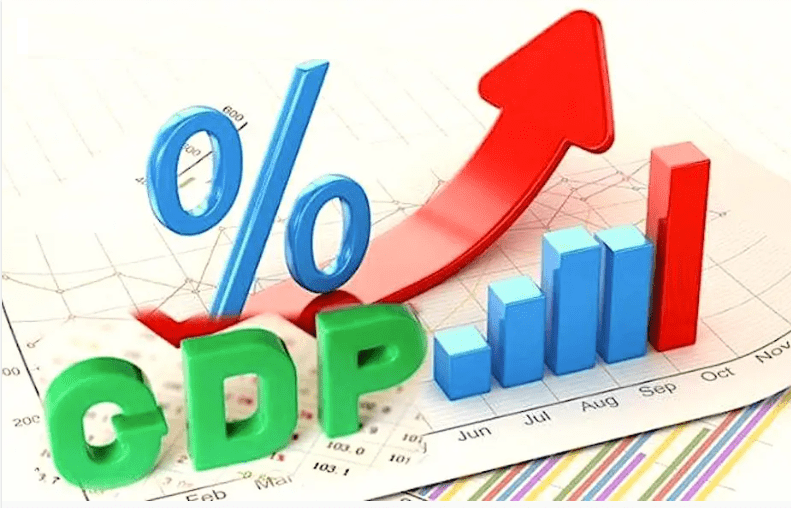Năm 1948, Tổ chức Y tế Thế giới (WHO) thành lập. Đây là cơ quan chuyên môn của Liên Hợp Quốc với nhiệm vụ chủ chốt là điều phối các vấn đề y tế toàn cầu, trong đó bao gồm giúp các quốc gia ứng phó với tình trạng khẩn cấp về sức khỏe cộng đồng như đại dịch Covid-19. Mỹ là quốc gia tài trợ lớn nhất cho tổ chức này.
Theo thống kê, trong thập kỷ qua chi phí đóng góp của Mỹ vào WHO từ 163 triệu đến 816 triệu USD. Tuy nhiên, việc WHO chậm ứng phó với đại dịch Covid-19 đã khiến chính quyền Trump đình chỉ tài trợ và chấm dứt tư cách thành viên của Mỹ vào năm 2020.
Trong bối cảnh Mỹ hiện đang diễn ra cuộc bầu cử Tổng thống cho nhiệm kỳ sắp tới, các chuyên gia đang đặt giả thuyết, liệu mối quan hệ giữa Mỹ và WHO sẽ căng thẳng trở lại nếu ông Trump đắc cử.
Tổn thất trong đại dịch Covid-19: WHO không thể đứng ngoài cuộc
Năm 2021, Ủy ban Độc lập về Chuẩn bị và Ứng phó Đại dịch đã cáo buộc WHO chậm trễ cảnh báo và ngăn chặn đại dịch, dẫn đến bi kịch thương vong trên toàn cầu.
Báo cáo của Ủy ban cũng cho biết, mặc dù đã được thông báo về các trường hợp này từ cuối tháng 12/2019, WHO đã không triệu tập ủy ban khẩn cấp của mình cho đến ngày 22/1/2020, và sau đó tiếp tục chờ đợi đến ngày 30/1/2020 mới tuyên bố tình trạng khẩn cấp toàn cầu. Cuối cùng, báo cáo kết luận rằng WHO "đã không đủ năng lực để thực hiện nhiệm vụ như mong đợi".
Việc WHO giải thích lý do vì sao không nâng mức cảnh báo kịp thời cũng đặt ra nghi vấn liệu tổ chức này có thật sự gắn trách nhiệm của mình đối với vấn đề đại dịch toàn cầu. Theo đó, cơ quan này chỉ thừa nhận "lỗi đánh máy" khi có sự nhầm lẫn về mức độ cảnh báo thay vì "cao" (high) thành moderate (vừa phải) chỉ sau 1 ngày công bố kết quả.
Bên cạnh Mỹ, các nước khác như Australia, Nhật Bản cũng chỉ trích WHO về vai trò trong Covid-19. Đã có nhiều nhà lãnh đạo và giới chuyên gia y tế kêu gọi Tổng Giám đốc WHO, Tedros Adhanom Ghebreyesus, từ chức.

Ông Tedros Adhanom Ghebreyesus, Tổng giám đốc WHO. Ảnh: Nature
Đây không phải là lần đầu, bởi trước đó WHO cũng vướng phải chỉ trích về cách ứng phó trước dịch bệnh Ebola tại Tây Phi. Vào thời điểm tháng 4/2014, dịch Ebola đã bùng phát mạnh mẽ, nhưng phải đến tháng 8/2014, WHO mới công bố tình trạng khẩn cấp toàn cầu. Sự chậm trễ này là một phần nguyên do khiến dịch bùng phát và lan rộng tại Tây Phi, gây ra cái chết của hơn 11.000 người.
Tổ chức này cũng từng bị cáo buộc đã thổi phồng cúm A/H1N1 thành đại dịch do tác động từ ngành công nghiệp dược phẩm. Tình hình càng trở nên tồi tệ hơn với đại dịch Covid-19.
Tương lai của WHO nếu ông Trump trở lại Nhà Trắng?
Trong nhiệm kỳ trước, ông Donald Trump từng chỉ trích WHO quá phụ thuộc vào Trung Quốc, không minh bạch trong việc cung cấp thông tin về Covid-19 và không hoàn thành nhiệm vụ bảo vệ sức khỏe toàn cầu.
Ông Trump cũng cho rằng nguồn ngân sách của quốc gia này cần được sử dụng hiệu quả hơn ở nơi khác. Theo đó, ngày 14/4/2020, ông Trump quyết định ngừng cấp ngân sách và "thực hiện một cuộc đánh giá nhằm làm rõ vai trò của WHO trong việc khiến thế giới mắc sai lầm nghiêm trọng khi đối phó với Covid-19 và che đậy sự lây lan của virus nCoV".

Ông Trump trong cuộc họp báo về tình trạng khẩn cấp của đại dịch Covid-19 tại Nhà Trắng, Washington, D.C. (Mỹ) ngày 6/4/2020. Ảnh: CNBC
Quyết định của ông Trump đã gây tranh cãi lớn. Nhiều người cho rằng việc cắt viện trợ sẽ làm suy yếu khả năng của WHO trong việc đối phó với các dịch bệnh tương lai và hỗ trợ các nước nghèo. Tuy nhiên, ông Trump vẫn giữ quan điểm, cho rằng WHO cần phải cải cách toàn diện và trở nên minh bạch hơn trong hoạt động. Điều này gây ra một cú sốc lớn cho WHO, bởi tổ chức này vốn phụ thuộc rất nhiều vào nguồn tài trợ từ Mỹ để duy trì hoạt động.
Mối quan hệ của WHO với các quốc gia thành viên khác cũng là vấn đề tạo nhiều tranh luận. Mặc dù nhiều thành viên tiếp tục ủng hộ WHO và thừa nhận tầm quan trọng của tổ chức này đối với vấn đề y tế toàn cầu, nhưng nhiều quốc gia khác cũng đang kêu gọi thúc đẩy cho một cuộc cải cách trong bộ máy của WHO để giúp giải quyết những điểm yếu của tổ chức này.
Bản thân WHO cũng ủng hộ việc thực hiện cải cách trong một số lĩnh vực và đã tiến hành một số quy trình cải cách nội bộ, đồng thời triển khai "vòng đầu tư" mới và thúc đẩy các quá trình đàm phán để sửa đổi Quy định Y tế Quốc tế cũng như thiết lập một hiệp định mới liên quan các vấn đề đại dịch, trong đó mỗi thỏa thuận đều bao gồm việc cải cách các hoạt động của WHO.
Hiện các nhà chức trách trên toàn cầu cũng liệt kê các vấn đề mà tổ chức này đang phải đối diện, trong đó bao gồm tăng trưởng thấp về nguồn quỹ, cơ cấu tổ chức cồng kềnh, phi tập trung và quan liêu.
Mặc dù WHO là một tổ chức về y tế và có nhiệm vụ cảnh báo các vấn đề y tế trên toàn cầu, nhưng các hoạt động của WHO hiện đang tham gia sâu vào các vấn đề chính trị, xây dựng chính sách quốc gia, cũng như đàm phán về các vấn đề y tế. Điều này, theo các chuyên gia, sẽ dẫn đến việc chia rẽ giữa các đảng phái, bộ ngành của các nước.
Hiện tại, vai trò của WHO đối với sức khỏe toàn cầu vẫn là dấu chấm hỏi. Tờ Wall Street Journal (Mỹ) ngày 15/4/2020 bình luận: "Thế giới cần một tổ chức quốc tế có năng lực đưa ra các khuyến nghị minh bạch về sức khỏe cộng đồng và phối hợp ứng phó với những dịch bệnh bùng phát trên quy mô toàn cầu. Thế nhưng, WHO đã trở nên ngày càng ít tập trung hơn vào nhiệm vụ trọng tâm nhất của mình trong những thập kỷ gần đây, thay vào đó, lại lãng phí nguồn ngân quỹ vào những chiến dịch quảng bá cho chương trình chăm sóc sức khỏe do các chính phủ điều hành và tấn công các công ty thuốc lá".
Trong nhiệm kỳ tới (2025-2029), nếu cựu Tổng thống Donald Trump tái đắc cử, khả năng cao những vấn đề giữa Mỹ và WHO sẽ được mổ xẻ trở lại. Rất có thể, nếu không cho thấy những cải cách để hoạt động hiệu quả hơn, tổ chức này sẽ phải đối mặt với thách thức lớn trong việc duy trì nguồn tài trợ và sự hỗ trợ từ các quốc gia thành viên, đặc biệt là Mỹ.
Điều đó buộc WHO sẽ phải tìm kiếm các nguồn tài trợ khác hoặc điều chỉnh hàng loạt chương trình, hoạt động của mình để phù hợp với nguồn ngân sách bị thu hẹp.
Minh Đức
Nguồn: https://www.nguoiduatin.vn/moi-quan-he-giua-my-va-to-chuc-y-te-the-gioi-lieu-co-quay-lai-tinh-trang-cang-thang-204240812145323071.htm







































Comment (0)